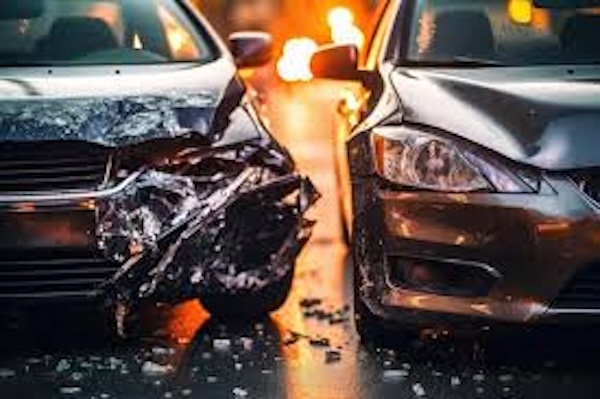Many motorcyclists love the freedom and exhilaration that come from cruising through the road on a motorcycle. Some appreciate the economy and convenience of riding a motorcycle on highways, freeways, and the streets in any city.
Unfortunately, in the event of a crash, motorcyclists are exposed as they have minimum protection – and that’s not the only concern for motorcyclists. While many motorcyclists understand the risks associated with riding a motorcycle and are often cautious when riding, other motorists are not always considerate or careful when sharing the road with cyclists.
When a careless driver causes an accident we recommend you meet with an motorcycle accident lawyer.
All traffic accidents are devastating; however, motorcyclists face a greater risk of severe consequences, including death when involved in a traffic accident. Suppose you or a loved one has suffered injuries because of a motorcycle accident – either as a passenger or a rider, you may be able to pursue compensation.
Reginald Greene is proud to advocate for motorcycle accident victims all over. We have the experience and dedication needed to not only guide you through the claim process but also help you achieve a favorable outcome.
Call to book your free consultation with a personal injury lawyer today at 866-4-LAW-411.
How Can A Motorcycle Accident Attorney Help With My Compensation Claim?
Typically, personal injury claims follow the same process. However, there are other unique elements in motorcycle accident claims, which mean that it would be best to have an injury lawyer who has expertise in motorcycle accident claims.
A motorcycle accident attorney can offer expert legal advice pertaining to these unique features and support you throughout the process, including:
- Filing a claim with your insurance provider
- Negotiate with the insurance company
- Represent you in court
Besides, injury lawyers have relationships with expert witnesses, which can go a long way in making your case. A lawyer will also handle all the grunt and background work of your claim as you recuperate.
Without expert legal representation, you’ll end up losing out on the money that you deserve. The legal procedures of filing an injury claim after a motorcycle accident are often filled with frustrating paperwork and jargon that can make you want to give up.
Not to mention, insurance companies have a standby team of aggressive attorneys waiting to settle your claim for cheap. When you work with us, you get experience and expertise where it matters most.
We have the knowledge, experience, and expertise to remove the burden of the claim from your shoulder and help you get maximum compensation for your claim.
What Are the Motorcycle-Specific Laws?
Motorcycle-specific laws in the United States vary by state, but they generally address several key areas:
- Helmet Laws: Most states have laws requiring motorcyclists and their passengers to wear helmets. These laws range from universal helmet mandates to more limited requirements, such as only requiring helmets for riders under a certain age or those without specific insurance coverage.
- Motorcycle Licenses: To legally operate a motorcycle, riders must typically obtain a motorcycle endorsement or license. This often involves passing a written test and a riding skills test, although some states offer motorcycle safety courses that can waive the testing requirement.
- Lane Splitting: Lane splitting, or riding a motorcycle between lanes of slow-moving or stopped traffic, is legal in only a few states, such as California. In other states, lane splitting is explicitly prohibited.
- Headlight Use: Many states require motorcyclists to have their headlights on at all times, both during the day and at night. This is intended to increase visibility and reduce accidents.
- Passenger Laws: Some states have specific laws regarding motorcycle passengers, including requirements for passenger footrests and seat belts, as well as age restrictions for passengers.
- Noise and Emissions: Motorcycles are often subject to noise and emissions regulations, which may limit the modifications that can be made to the exhaust system and other components to ensure compliance with state and federal standards.
- Equipment Requirements: States may mandate certain safety equipment for motorcycles, such as mirrors, turn signals, and specific tire types, to ensure the safety of riders and others on the road.
These laws are designed to enhance safety and regulate the use of motorcycles, and it’s important for riders to familiarize themselves with the specific regulations in their state to ensure compliance and safe operation.
How Is Fault Determined in Motorcycle Accident Cases?
Determining fault in a motorcycle accident involves a thorough investigation of the accident scene, review of evidence, and analysis of the actions of all parties involved.
Law enforcement officers often play a key role by documenting the scene, collecting witness statements, and preparing an accident report that outlines their observations and conclusions. This report, while not always definitive, provides a foundational assessment of who might be at fault based on traffic laws and observed behaviors.
Additionally, insurance companies may conduct their own investigations, which involve reviewing photographs, damage reports, and medical records to establish liability.
In determining fault, factors such as speed, road conditions, and compliance with traffic signals are evaluated. For instance, if a motorcyclist was speeding or not wearing a helmet when required, these factors might influence the degree of fault assigned.
Conversely, if a driver failed to yield the right of way or was distracted, these actions could be primary contributors to the accident. Comparative fault principles may apply, meaning fault could be shared between parties, which affects how damages are awarded.
Ultimately, the determination of fault can be complex and may involve legal proceedings to ensure a fair outcome based on the evidence presented.
What Type Of Compensation Can I Receive For My Motorcycle Accident?
If you or a loved one has been hurt in a motorcycle accident – and another party is at fault for causing the crash – you are entitled to pursue compensation. While every motorcycle crash is unique, generally, with the help of a reputable injury lawyer, motorcycle accident victims can recover the following damages:
Economic Damages
These are sometimes referred to as compensatory damages – because they aim to offer financial compensation to the victim for their losses and injuries. Economic damages include:
- Medical expenses (past, present, future, and even the cost of medical devices)
- Damage of property – Compensation for any clothing, items, vehicle or personal items damaged during the crush
- Income loss: Reimbursement for the work wages the victim has lost. Also includes the money that you would have earned at work in the future
- Legal fees: Costs associated with filing the injury lawsuit
Non-Economic Damages
These are also known as hedonic damages and are intended to compensate the plaintiff for intangible damages. These include:
- Pain and suffering
- The negative impact that the injuries have on the plaintiff’s life
- A loved one can recover for loss of love, household services for the victim, and companionship
Punitive Damages
These exceed simple monetary compensation – since there are not intended to compensate the plaintiff for loss – and are awarded to punish defendants who exhibited extremely reckless or hazardous behavior.
Why Was My Motorcycle Accident Claim Denied?
Imagine you’ve been in a devastating motorcycle accident and submitted your claim to your insurer, only for them to tell you your claim has been denied! This can be extremely disconcerting. There are several reasons why your claim can be denied after a motorcycle accident. They include:
- Your policy had lapsed or was canceled
- The driver was underinsured or uninsured altogether
- They are convinced you were at fault
- Missing documentation
- They claim you had pre-existing injuries and were not caused by the accident
- They don’t believe you are faking or exaggerating your injuries
- Because of what you posted on social media
It’s common for insurance companies to deny claims; after all, they are looking to settle your issue cheaply. However, don’t give up, our lawyers will assist you in appealing a denied claim and get you the financial compensation you deserve.
Are There Time Limits To Filing A Claim After A Motorcycle Accident?
The time limits to file a claim after a motorcycle accident vary by jurisdiction, but generally, they are governed by statutes of limitations. In most states, you typically have between one and three years from the date of the accident to file a personal injury claim.
This period can be shorter or longer depending on the specific details of the case and whether the claim is against a government entity or involves other special circumstances.
It’s crucial to consult with an attorney promptly to ensure that you meet all deadlines and preserve your right to seek compensation for damages, medical expenses, and other losses resulting from the accident.
Contact an Experienced Motorcycle Accident Lawyer
Reginal Greene uses his experience to offer legal advice and achieve favorable outcomes for motorcycle accident victims. Don’t let the intricate nature of state laws or a denied claim prevent you from getting the compensation you need and deserve.
Call our car accident lawyers at 866-4-LAW-411 to schedule your free no-obligation strategy consultation.





